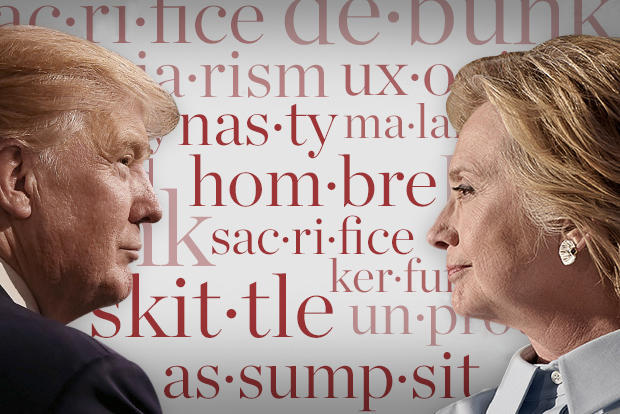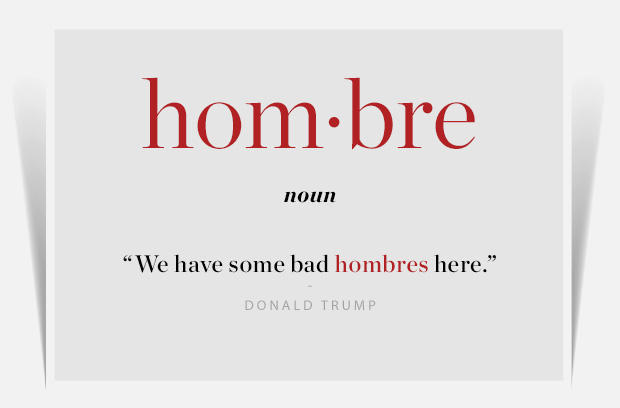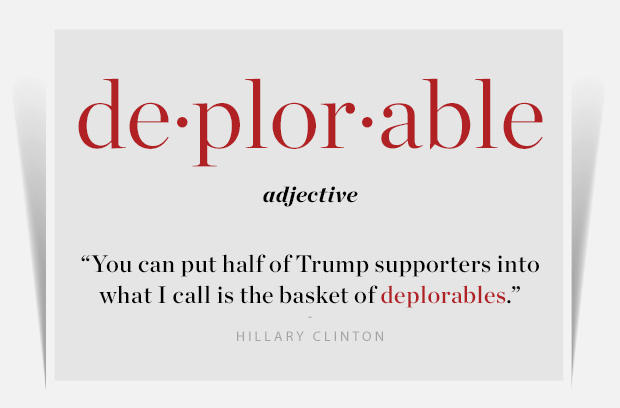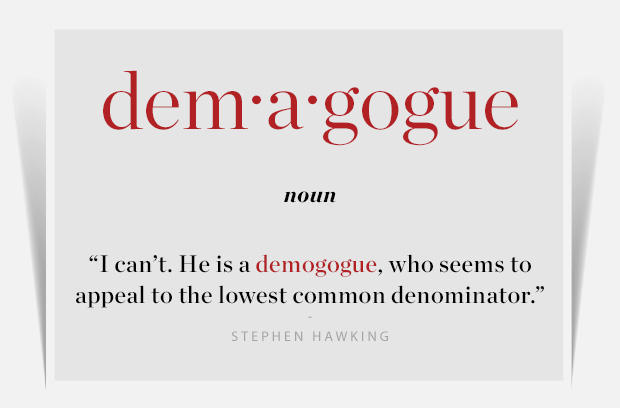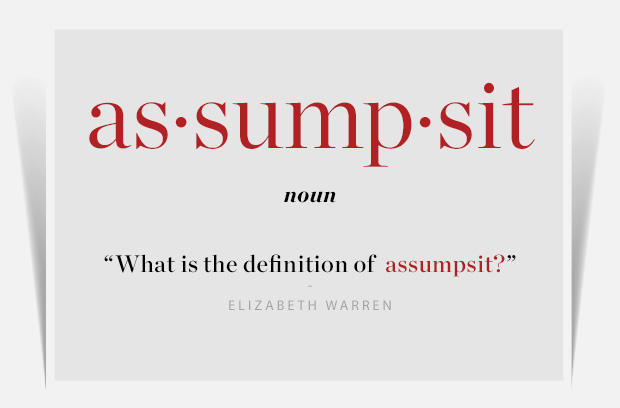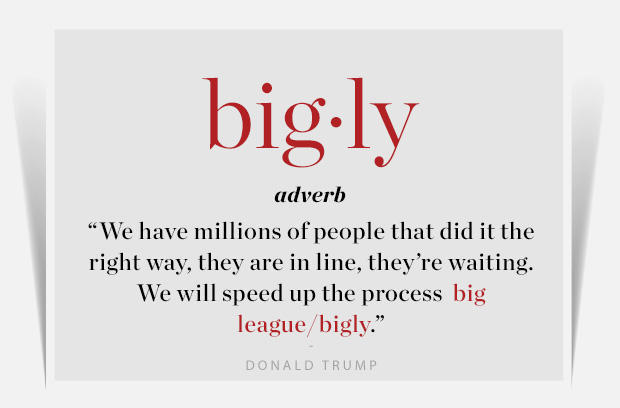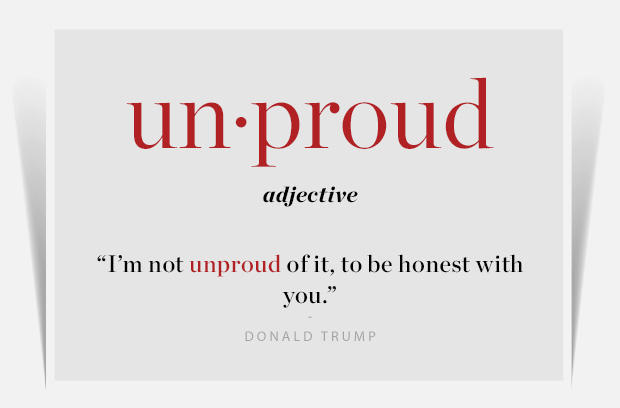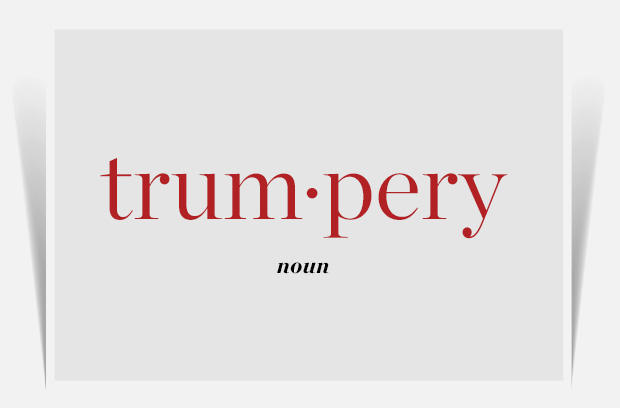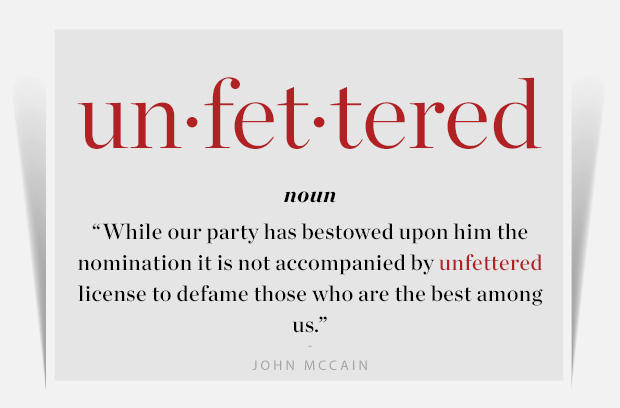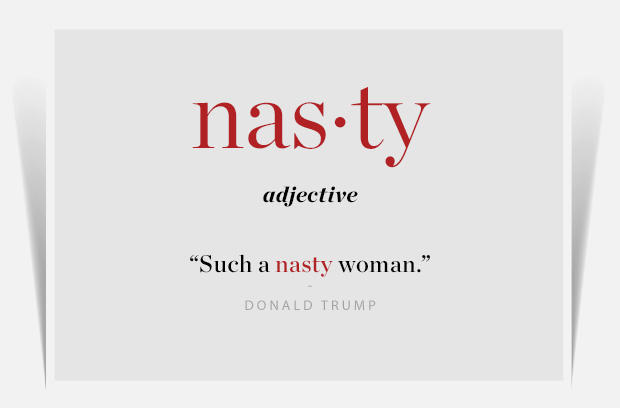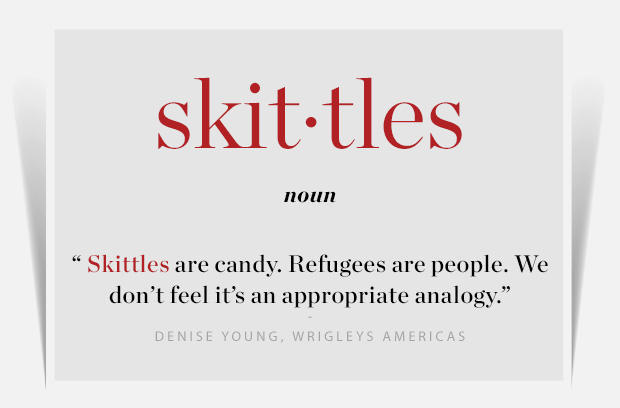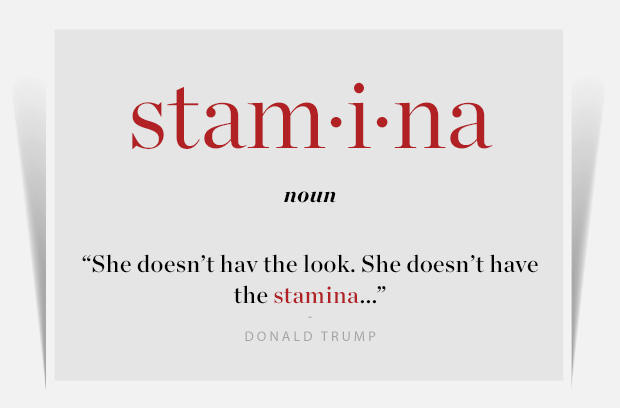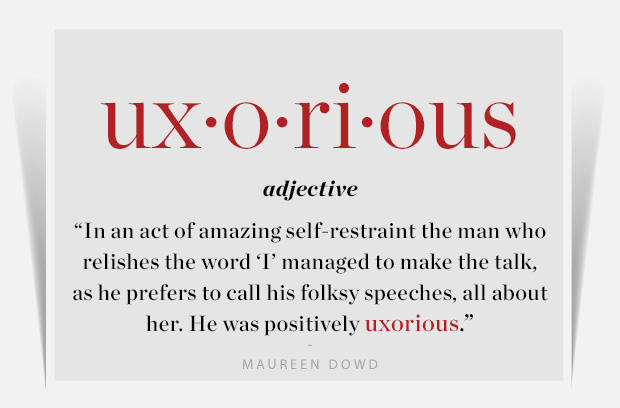A campaign 2016 dictionary
Who knew that this roller coaster presidential campaign would be so good for one’s vocabulary. A distinct set of words has emerged over the past few months to define this turbulent and crazy political period.
Luckily, the American public has had Merriam-Webster’s Collegiate Dictionary to help guide them, often with humor and sarcasm mixed in. As the dictionary folks point out, it’s fascinating, “not how the candidates talk and what that says about them, but what people take away” from it all, what they latch onto. “Words matter to people.”
It’s remarkable to see how often events and stories can be distilled into a single word or phrase. Merriam-Webster found Twitter was an ideal way to share what words people were looking up on their website, particularly when it came to news events. They live tweeted the campaign and the debates, becoming useful fact-checkers. They’ve clearly had fun discussing the validity and misuse of certain words… think hombre, unproud, bigly… for voters trying to make sense of this election.
Here are some of the words whose search traffic skyrocketed in the midst of the 2016 presidential campaign.
Hombre
The Spanish word for “man,” which in English is often used in a slightly more informal fashion to refer to a “guy” or “fellow.”
The third and final presidential debate produced a flurry of interest in the word – and some confusion – after Donald Trump made a reference to “some bad hombres.” Hombre searches shot through the roof with a 120,000% spike over the hourly average.
Trump’s pronunciation also led to a spike in search traffic for two similar sounding words: ombré (meaning color shading from lighter to darker) and ombre (a three-handed card game popular in the 17th and 18th centuries). Ombré also got its own set of memes with people putting together photos of ombré hairstyles.
Oh, and you can now buy “Bad Hombre” t-shirts.
Deplorable
Very bad in a way that causes shock, fear, or disgust; deserving censure or contempt
Hillary Clinton’s use of “deplorables” to describe some Trump supporters at a Sept. 2016 fundraiser turned the word into an uncommon noun (it doesn’t exist as a noun in Merriam-Webster), confusing quite a number of people. The word won’t go away now since the Republicans latched onto it.
Merriam-Webster has a descriptivist approach meaning it tries to reflect how language is used rather than provide strict usage guides. Which means they’re “flexible” based on popular usage.
Demogogue
A leader who makes use of popular prejudices and false claims and promises in order to gain power
Searches for demagogue increased 9,000% after physicist Stephen Hawking used it when he said he couldn’t explain Donald Trump’s success in the Republican primaries. President Obama used it at the Democratic National Convention when he spoke about “homegrown demagogues,” and Hillary Clinton later said Trump was trying to make “some kind of a demagogic point” with his comments about terror incidents. Yes, demagogic is a word.
Assumpsit
An express or implied promise or contract or quasi contract, the breach of which may be grounds for a suit, or a common-law action
Non-lawyers got a bit of an education when Rep. Joseph Kennedy III introduced Sen. Elizabeth Warren on the first night of the Democratic Convention in July 2016 with a story of being put on the spot his first day at Harvard Law School with this question. When he admitted to then-Professor Warren he didn’t know what it meant, Warren said, “Mr. Kennedy, do you own a dictionary? That’s what people use when they don’t know a word.”
Lesson learned. The convention audience looked up the word to the tune of a 92,000% increase over the previous monthly average, because Kennedy didn’t explain the word in his speech.
Bigly
In a big manner; with a great scope; loudly, boastfully
The Twittersphere and the rest of America wasn’t sure if Trump said “big league” or “bigly” in discussing his immigration plan at the third presidential debate. Bigly quickly became a top search (“Is bigly a word?”) and Merriam-Webster was happy to point out on Twitter, “Yes, ‘bigly’ is in the dictionary.” We can see everyone jumping on the bigly bandwagon now.
Unproud
Not proud: modest, meek
Donald Trump used the word in the second presidential debate when asked about his 3 a.m. tweetstorm about former Miss Universe Alicia Machado. People were definitely un-clear this was a real word.
Trumpery
Worthless nonsense, falsehood
This may sound like a word coined by comedian Stephen Colbert in the tradition of “truthiness” – but it’s not made up. Believe it or not, though very obscure, trumpery existed as a word long before Donald Trump came on the scene. It is mentioned in a dictionary as far back as 1755, according to Merriam-Webster, and has existed since the late 15th century.
Stochastic
Involving chance or probability; random
We have a Rolling Stone magazine article by David S. Cohen to thank for bringing this word to wider attention. The writer used it in reference to Donald Trump’s stump speech in which he suggested that “Second Amendment people” could “do” something about Hillary Clinton.
Sacrifice
Something given up or lost; destruction or surrender of something for the sake of something else
Of course most people know the word, but it entered the campaign lexicon after Gold Star father Khizr Khan’s emphatic speech at the Democratic National Convention in August 2016. The boost in searches for this word lasted nearly a full week, according to Merriam-Webster, thanks to the speech and Trump’s reaction to it lasting several news cycles.
Unfettered
Not controlled or restricted
On August 1, 2016, people looked up unfettered after Sen. John McCain’s statement condemning Donald Trump’s comments about the parents of Capt. Humayun Khan.
Plagiarism
To steal and pass off (the ideas or words of another) as one’s own
Melania Trump’s Republican National Convention speech became memorable for ways not intended when @JarrettHill on Twitter pointed out that entire sections were incredibly similar to first lady Michelle Obama’s 2008 Democratic National Convention speech. This prompted a spike in online dictionary lookups for both plagiarize and plagiarism. This word maybe be one that we mostly think about in school, but it proved important to be reminded of it in real life.
Nasty
highly unpleasant; behaving in an unpleasant or spiteful way
The third presidential debate produced many key words including nasty, which became one of the most searched entries for Merriam-Webster. The word goes back more than 700 years and has had a variety of meanings. The positive interpretations only go back to the early 19th century and Clinton supporters laid claim to that version.
Merriam-Webster was quick to point out that, though they don’t take positions on things, they “would make a plea for the resurrection of one of the other 19th century expressions....’sling a nasty foot’ (meaning to dance extremely well).” Sounds like a winner.
Skittles
Fruit-flavored, colorful candy with a “taste the rainbow” slogan
Candy made an impact on this election thanks to Donald Trump Jr.’s tweet in Sept. 2016, using a photo of a bowl of Skittles to make an analogy between the candy and Syrian refugees. “If I had a bowl of skittles and I told you just three would kill you. Would you take a handful?” it said.
Many people agreed with the response by Denise Young, VP at Skittles’ parent company Wrigley: “Skittles are candy. Refugees are people.”
You won’t find the candy bowl photo online because the image belonged to a photographer, a former refugee, and it was used without permission.
It isn’t the first time Skittles has entered the political discourse. It came up in connection with the shooting death of Trayvon Martin, who died with a bag of Skittles in his pocket and no weapon on him. Back then it became a symbol of Martin’s innocence and was seen in protests over his death.
If you didn’t know what Skittles were before, you do now.
Stamina
Staying power; great physical or mental strength that allows you to continue to do something for a long time; perseverance
Interest in this word spiked dramatically on Sept. 26, 2016, the night of the first presidential debate, when Donald Trump kept accusing Hillary Clinton of lacking stamina.
Clinton’s response: “Well, as soon as he travels to 112 countries and negotiates a peace deal, a cease-fire, a release of dissidents, an opening of new opportunities and nations around the world, or even spends 11 hours testifying in front of a congressional committee, he can talk to me about stamina.”
The word has often been on Merriam-Webster’s list of top 5 lookups.
When one person on Twitter questioned why people would look up words they know, Merriam-Webster simply responded,“to learn more not to profess ignorance.”
Uxorious
Excessively fond of or submissive to a wife
Searches for this word were spurred by New York Times columnist Maureen Dowd’s commentary on Bill Clinton’s very long personal speech at the Democratic National Convention. In an effort to humanize his wife, Hillary, leading up to her nomination, the former president delivered a detailed account of the couple’s romance. For many the speech was awkward and fell under the category of TMI.
For more trending words: Merriam-Webster news trends watch
On Twitter: Merriam-Webster
